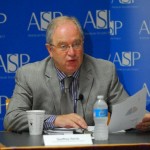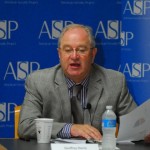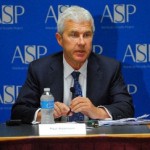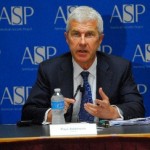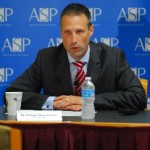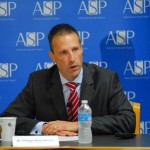American Security Project hosted Paul Adamson, Phillipe Maze-Sencier, and Geoffrey Harris for a discussion centering on the political, social, and economic implications of last weekend’s European Parliamentary elections. Victories for extremist parties across Europe on the left and the right, especially in the UK and France, have been described in the media as an “earthquake” and a “landslide” taking European politics by storm, but the panelists were not surprised by the results.
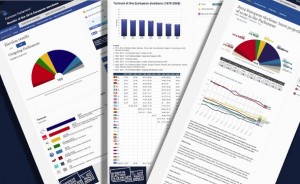 Maze-Sencier noted that anyone paying close attention to European politics over the last few years should not be surprised, calling the attention given to the rise in extremist parties a “media circus.” However, he also made it clear that the message sent by the voters cannot be ignored and the panelists agreed that “business as usual” in European politics is a dangerous course for an institution undergoing a serious identity crisis.
Maze-Sencier noted that anyone paying close attention to European politics over the last few years should not be surprised, calling the attention given to the rise in extremist parties a “media circus.” However, he also made it clear that the message sent by the voters cannot be ignored and the panelists agreed that “business as usual” in European politics is a dangerous course for an institution undergoing a serious identity crisis.
A major theme the panelists emphasized was the confusion and uncertainty surrounding the future of the EU and the viability of the “European Project” going forward. Adamson talked about the problem of complacency, claiming that the majority EPP and S&D parties need to take the shifting political landscape seriously and learn to adapt to a changing environment. Harris described the need to adapt to a “generational change” currently taking place within the EU, noting that “business as usual” and status quo policies no longer remain an option.
While the media narrative surrounding the Parliamentary elections focuses on the success of extremist parties, the panelists downplayed their ability to take hold of Parliament. Maze-Sencier believes that the rise in Eurosceptic parties may create a few legislative hurdles, but ultimately their lack of coherence will limit their ability to have a large impact within Parliament. Adamson agreed, calling parties such as France’s National Front and its offshoots “very noisy” but “disorganized.”
In regard to relations between the U.S. and EU, the panelists focused on cultural differences that need to be overcome in order to foster a more productive relationship. The NSA spying scandal has been met with a greater degree of public outrage in Europe than in the U.S., underscored by the fact that a divide over data privacy policy has been a tripping point in TTIP negotiations. As for the future of TTIP, Maze-Sencier noted that while the deal may face a few hurdles in Parliament, the more pressing danger to its future may be the U.S. Congress.
The EU is currently facing an identity crisis, an uncertain future, and dwindling public support for its larger goal of European integration. While the Parliamentary results might not pose an immediate threat to its existence, they should serve as a tough wake-up call to proponents of a more unified Europe who have thus far done very little to adapt. The future of the EU is hazier than ever, but one thing is for certain: “business as usual” needs to end.
You can watch and listen to the event by clicking below:
The post EU Elections: Implications for the US – Event Review appeared first on American Security Project.

